Crypto Exchange Fee Calculator
Calculate Your Trading Costs
Fee Comparison
When you search for Hubi crypto exchange, you’ll quickly realize something strange: most of the results point to HTX Exchange. That’s not a mistake. Hubi and HTX are often mixed up - and for good reason. Hubi is a real, operating exchange, but it’s tiny compared to HTX, which used to be called Huobi Global. If you’re looking to trade crypto and stumbled on “Hubi,” you might actually be looking at HTX without knowing it. This review clears up the confusion and tells you what you really need to know about both.
What Is Hubi Crypto Exchange?
Hubi is a straightforward crypto exchange that doesn’t try to be everything to everyone. It charges a flat 0.20% fee on every trade, whether you’re making a market (maker) or taking one (taker). That’s it. No tiers. No VIP discounts. No hidden charges based on volume. For someone who trades occasionally or doesn’t want to chase fee structures, that simplicity is a relief. Withdrawals are where Hubi shines. To pull out Bitcoin, you pay just 0.0005 BTC. That’s about 40% lower than the industry average of 0.0008 BTC. Most exchanges charge a percentage or a flat fee in USD, but Hubi sticks with the crypto-native model - and it’s cheaper than most. If you’re moving BTC in and out often, that adds up. But here’s the catch: Hubi doesn’t offer much else. No futures trading. No staking. No Launchpools. No SmartEarn. No DAO governance. If you want to earn interest on your crypto or trade leveraged positions, Hubi won’t help you. It’s a spot-only exchange, and that’s fine - if that’s all you need.HTX Exchange: The Bigger Player Everyone Confuses With Hubi
HTX (formerly Huobi Global) is the giant that’s stealing the spotlight. Launched in 2013, it rebranded to HTX in 2023 and has since exploded. In Q1 2025 alone, net deposits jumped 210% while most other exchanges flatlined. It now supports over 700-900 trading pairs, depending on the source. That’s more than Kraken, more than Binance in some regions. HTX’s fee structure is more complex. It offers zero-cost futures trading, VIP tiers with sliding discounts (down to 0.04% for high-volume traders), and even a subscription model where users pay a monthly fee to lock in lower rates. It’s built for serious traders and institutions. Hubi? Not even close. Security is another area where HTX outshines Hubi. HTX uses cold storage for 95%+ of user funds, real-time monitoring, withdrawal whitelisting, and an Investor Protection Fund. That fund? It’s fed by 20% of HTX’s quarterly profits, used to buy back HT tokens and cover losses if something goes wrong. Hubi doesn’t mention anything like that. No public fund. No transparency report. Just a website and a fee schedule.How Hubi’s Fees Compare to the Competition
The crypto exchange fee war is real. The industry average used to be 0.25%. Now, it’s dropping fast. Binance and Bybit charge 0.10% for makers. KuCoin is at 0.15%. Even smaller exchanges like Bitget are matching those rates. Hubi’s 0.20% is still in the ballpark - but it’s not leading. It’s average. And in 2025, average isn’t enough. If you’re trading over $10,000 a month, you’re paying $20 in fees on Hubi. On Binance, you’d pay $10. On HTX with VIP status? Maybe $4. Withdrawal fees are Hubi’s secret weapon. 0.0005 BTC is one of the lowest in the market. Compare that to:- Binance: 0.0005 BTC (same)
- Kraken: 0.0005 BTC (same)
- Coinbase: $1.49 flat fee (about 0.0007 BTC)
- Bybit: 0.0005 BTC (same)
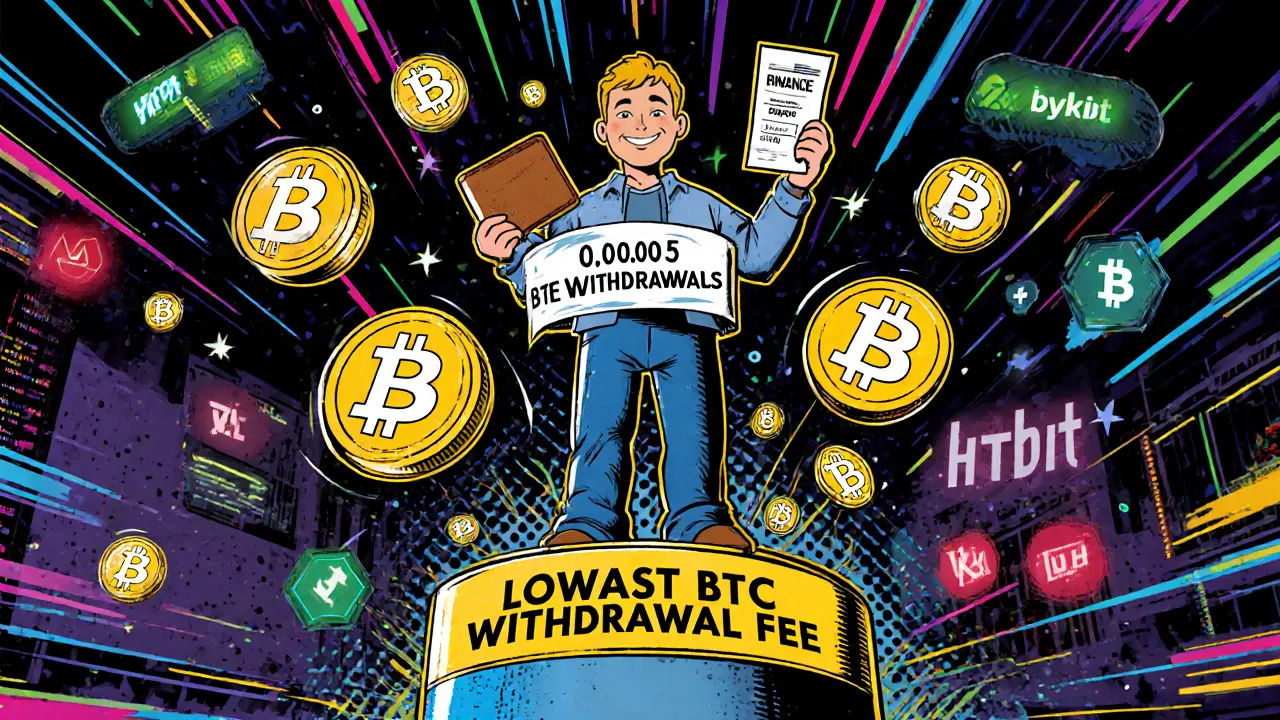
Security: What Hubi Doesn’t Tell You
Hubi doesn’t publish any security details. No cold storage percentages. No audit reports. No insurance fund. Nothing. That’s not normal in 2025. Even small exchanges like MEXC and OKX publish at least basic security info. HTX, on the other hand, details its multi-layered protection: cold wallets, two-factor authentication enforcement, withdrawal delays, and a $100 million+ Investor Protection Fund. It’s not perfect - HTX has a history of past breaches and regulatory scrutiny - but it’s transparent. Hubi? Silent. If you’re putting in $10,000 or more, silence on security is a red flag. You don’t want to be the one who finds out too late that the exchange doesn’t back up its promises.User Experience and Platform Access
Hubi’s interface is clean. No clutter. No confusing menus. It’s basic, but functional. The mobile app works fine for spot trading. But that’s it. No charting tools beyond basic candlesticks. No order types beyond market and limit. No API access mentioned anywhere. HTX’s platform? It’s packed. Advanced order types, margin trading, grid bots, copy trading, and a fully-featured web terminal. The app is polished. The desktop version supports custom layouts. It’s built for traders who want control. Funding is another gap. Hubi doesn’t list any fiat on-ramps. You can’t deposit USD, EUR, or GBP directly. You need to buy crypto elsewhere, then send it over. HTX supports bank transfers, cards, and P2P trading in over 30 countries.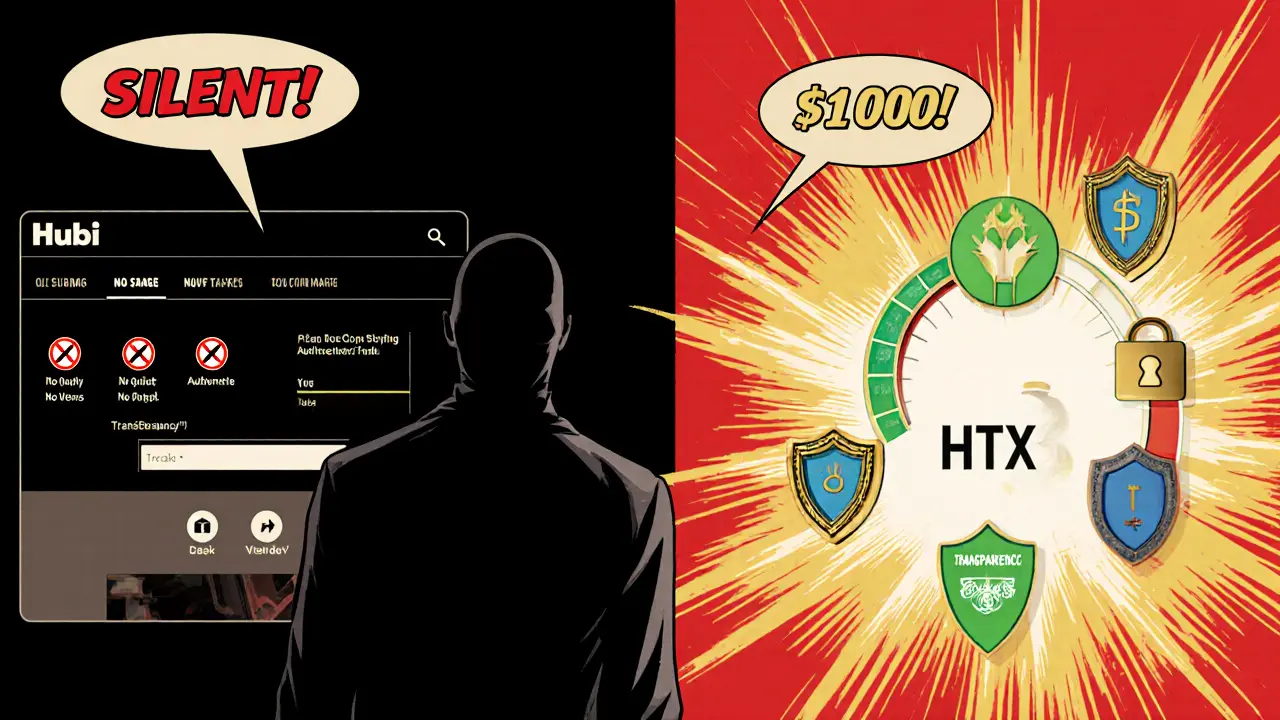
Who Should Use Hubi?
Hubi isn’t for everyone. But it’s not useless.- If you only trade Bitcoin and a few altcoins - and you do it infrequently - Hubi’s simple fee structure works.
- If you’re tired of complex fee tables and want a no-nonsense exchange, Hubi delivers.
- If you withdraw BTC often and care about low fees, Hubi is one of the better options.
Who Should Avoid Hubi?
Avoid Hubi if:- You want to deposit fiat (USD, EUR, GBP, etc.) - it doesn’t support any.
- You’re trading over $5,000 a month - you’ll pay more than you need to.
- You care about security transparency - Hubi gives you nothing to verify.
- You want to use bots, APIs, or advanced order types - they don’t exist here.
The Bottom Line: Hubi Is a Niche Tool
Hubi isn’t a top-tier exchange. It’s not trying to be. It’s a minimalist spot trader’s tool - cheap on withdrawals, average on fees, silent on security. If you’re already holding BTC and want to move it around without paying extra, Hubi’s withdrawal fee makes sense. But if you’re looking for a full-service exchange with growth potential, security, and tools - go with HTX. It’s the real player. Hubi? It’s the quiet sidekick. In 2025, crypto exchanges are judged by more than just fees. They’re judged by trust, transparency, and features. Hubi checks one box. HTX checks six. If you’re choosing between them, the choice isn’t hard.Is Hubi the same as HTX?
No, Hubi and HTX are two different exchanges. HTX (formerly Huobi Global) is a major global platform with over 700 trading pairs, futures, staking, and an investor protection fund. Hubi is a smaller exchange that only offers spot trading with a flat 0.20% fee and low Bitcoin withdrawal fees. They are not affiliated.
Does Hubi support fiat deposits like USD or EUR?
No, Hubi does not support direct fiat deposits. You cannot buy crypto with a credit card or bank transfer on Hubi. You must first purchase cryptocurrency on another exchange (like Coinbase or Kraken) and then send it to your Hubi wallet.
Are Hubi’s trading fees competitive in 2025?
Hubi charges a flat 0.20% fee on all trades, which is slightly above the current industry average of 0.10%-0.15%. While not the cheapest, it’s still within range. However, exchanges like Binance and Bybit offer lower fees for high-volume traders, making Hubi less attractive for active traders.
How low is Hubi’s Bitcoin withdrawal fee?
Hubi charges 0.0005 BTC per Bitcoin withdrawal, which is about 40% lower than the industry average of 0.0008 BTC. This makes it one of the most cost-effective options for BTC withdrawals, tied with Binance and Kraken.
Is Hubi safe to use?
Hubi doesn’t publicly disclose its security measures. There’s no mention of cold storage, insurance funds, or audit reports. In contrast, exchanges like HTX and Binance provide detailed security protocols. Without transparency, Hubi carries higher risk - especially for users holding significant amounts of crypto.
Should I use Hubi or HTX for trading?
Use Hubi only if you’re a simple spot trader who withdraws Bitcoin often and doesn’t need advanced features. For everything else - futures, staking, fiat deposits, security transparency, or active trading - HTX is the clear choice. HTX has more assets, better tools, and a proven track record of growth and user trust.

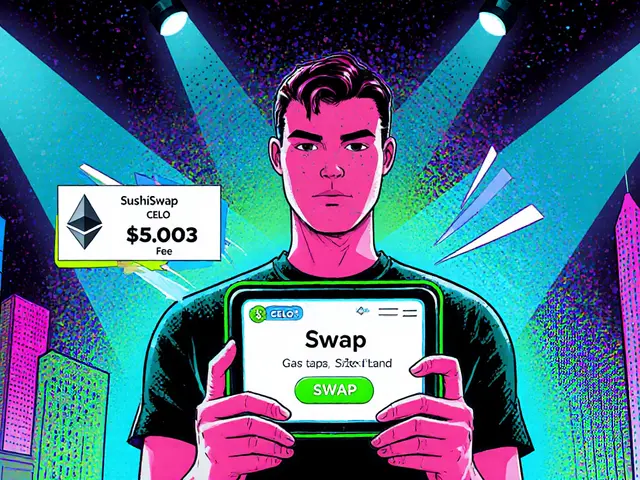
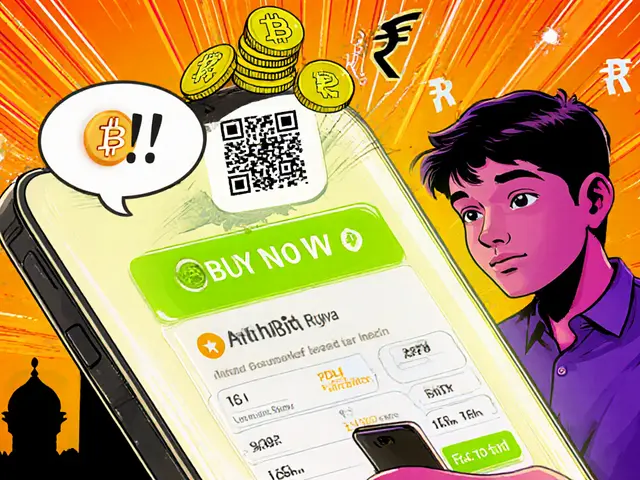
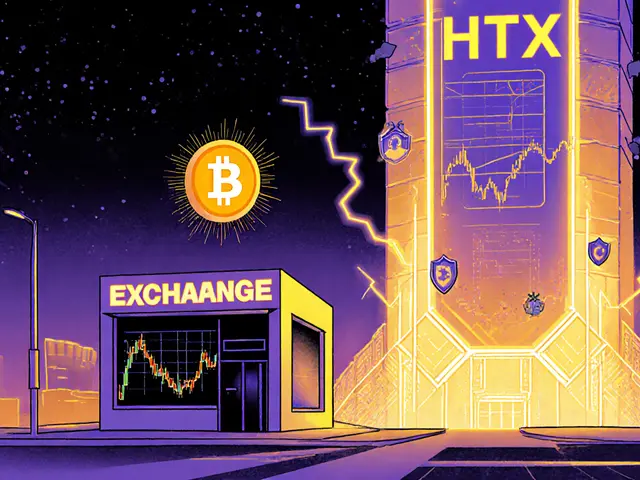
Adrian Bailey
November 12, 2025 AT 11:38man i just stumbled on hubi last week cause i saw someone on twitter say their withdrawal fee was crazy low, and i was like 'wait, is this the same as htX?' lol. turned out it wasn't, and now i'm stuck with this minimalist thing that's basically a bitcoin post office. no staking, no charting tools, no fiat on-ramp - just me, my btc, and a 0.2% fee that feels like paying for a taxi ride to nowhere. but hey, at least my withdrawals don't cost me an arm and a leg 😅
Rachel Everson
November 14, 2025 AT 04:53totally get what you mean - i switched to hubi after getting burned by all the fee tiers on other platforms. i just buy btc every few months and move it to my cold wallet. for that? it's perfect. no fluff, no upsells, no 'premium membership' nonsense. if you're not trying to day trade or farm yield, hubi’s actually kinda beautiful in its simplicity. plus, 0.0005 btc withdrawal? chef’s kiss 🤌
Johanna Lesmayoux lamare
November 15, 2025 AT 08:25hubi’s fine if you’re not greedy.
ty ty
November 15, 2025 AT 13:13so you're telling me this 'hubi' is the crypto equivalent of a flip phone? no futures, no staking, no security disclosures... just a 0.2% fee and a prayer? i'm impressed. truly. the only thing more outdated than this exchange is my grandpa's fax machine. maybe next they'll add a dial-up modem for 'authenticity'.
BRYAN CHAGUA
November 17, 2025 AT 00:55it's interesting how hubi carves out a niche by doing so little. in a world obsessed with feature bloat, sometimes simplicity is the real luxury. most exchanges treat users like ATMs - trying to extract every possible fee, every possible service. hubi? it just moves coins. and honestly? that’s enough for a lot of people who just want to hold and move. the lack of transparency on security is concerning, yes - but if you’re not holding large sums, the risk/reward might still balance out.
Debraj Dutta
November 18, 2025 AT 09:57in india, most people don't even know hubi exists. we all use binance or okx because of fiat ramps and local payment options. but if someone wants to send btc from a us exchange to a cold wallet cheaply, hubi’s withdrawal fee is actually one of the best. i tested it - 0.0005 btc is real. no gimmicks. just clean math. still, i’d never keep funds there long-term. too quiet on the security front.
tom west
November 19, 2025 AT 07:32hubi isn't a 'niche tool' - it's a liability waiting to be exploited. zero transparency? zero audits? zero insurance fund? in 2025, that’s not 'minimalist', that's negligent. you think you're saving on fees, but you're gambling with your assets on a platform that doesn't even publish its server locations. if you're using hubi for anything over $1k, you're either reckless or stupid. and if you're calling it 'simple' instead of 'dangerous', you're part of the problem.
dhirendra pratap singh
November 20, 2025 AT 07:35OMG i just found out hubi doesn't even have staking??? 😭 i cried for 20 minutes. like... how do you even sleep at night? i need my passive income! my doge needs to earn! i thought i was getting a crypto bank, not a digital coin box with a sign that says 'no refunds, no support, no mercy'. and now i'm stuck here with 0.20% fees and zero vibes. someone please tell me this is a joke. 🥲💔
Ashley Mona
November 20, 2025 AT 13:30you guys are overthinking this. hubi is the crypto equivalent of a thrift store jacket - not flashy, not new, but it fits, it’s clean, and you didn’t pay $200 for it. if you’re chill and just moving btc around, why complicate it? i’ve used it for 8 months, never had an issue, and i’ve withdrawn over 15 times. 0.0005 btc every time? yes please. security? i use 2fa, paper wallet, and i don’t keep more than i’m willing to lose. sometimes less is more. 🌿✨
Edward Phuakwatana
November 21, 2025 AT 17:45hubi’s existence is a beautiful rebellion against the crypto-industrial complex. while every other exchange is building AI-powered arbitrage bots and gamified staking dashboards, hubi quietly says: 'here’s your order book, here’s your withdrawal address, go forth.' it’s not about being the biggest - it’s about being the most honest in its limitations. yes, it lacks security disclosures - but isn’t that more honest than pretending you have a $100M fund while quietly siphoning liquidity? hubi doesn’t lie. it just doesn’t speak. and in a world of performative transparency, that silence speaks volumes. 🤫🧠
Suhail Kashmiri
November 22, 2025 AT 11:37you people are so naive. hubi is a trap. they don't have fiat because they don't want to be regulated. they don't have security info because they're hiding something. and that low withdrawal fee? it's bait. once you deposit, they'll make it impossible to withdraw later. i've seen this script before - it's called 'rug pull lite'. don't be fooled by simplicity. it's just the calm before the storm.
Kristin LeGard
November 24, 2025 AT 05:29hubi? please. if you're using hubi, you're basically trusting a guy with a laptop in a basement to hold your life savings. meanwhile, htX has real offices, real auditors, and real investors. if you're not using a platform with a track record in the U.S. or EU, you're not serious - you're just crypto-casual. get real. your 'simple' exchange is just a ghost town with a domain name.
Arthur Coddington
November 25, 2025 AT 21:12isn't it poetic? hubi is the crypto equivalent of a lone tree in the desert - standing there, silent, unbothered, offering shade to no one. no fanfare. no ads. no 'join our community!' banners. just you, your btc, and the void. maybe that's the real luxury in 2025 - not being sold to. not being marketed to. just... existing. even if it's terrifying. even if it's risky. sometimes the quietest things are the most real.
Phil Bradley
November 26, 2025 AT 22:34lol i love how some of you treat hubi like it's a villain. it's not evil - it's just not trying to be a bank. i use it to move btc from my binance account to my cold wallet. that's it. no drama, no fees, no stress. and honestly? i think the fact that it doesn't try to be everything is kind of refreshing. we don't need another exchange with 200 tokens and 12 different ways to earn interest. sometimes you just want to send coins. hubi lets you do that. and that's enough for me. 🤝
Stephanie Platis
November 27, 2025 AT 07:17Hubi’s lack of security disclosures is not merely 'concerning' - it is a fundamental violation of fiduciary responsibility in digital asset custody. The absence of a published cold-storage percentage, independent audit reports, or an insurance mechanism renders this platform non-compliant with even the most minimal standards of operational transparency expected in 2025. To describe Hubi as 'simple' is to romanticize negligence. Users who entrust assets to such a platform are not 'minimalists' - they are statistically vulnerable. This is not a niche tool. It is a liability vector.